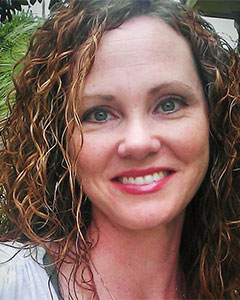If your child has had a concussion or brain injury, you may not see the full effects for years to come
As an occupational therapist, one of the things that I do in my job is assist children who are recovering from a traumatic brain injury. I help them work through the new challenges they face because of their injury in hopes that they can fulfill their full potential. As a medical community, we are still working to fully understand how a brain injury affects a child’s long-term growth and development, but what recent research has shown us is that it may be long after the initial recovery period from a traumatic brain injury (even years later) before we see the full effects the injury will have on their growth and development.
What parents need to know
When we talk about brain injuries, it’s important to understand that we aren’t only talking about major injuries; we are also talking about relatively minor brain injuries, such as a concussion. Whether they have had a severe injury or a relatively minor one, children may experience long-lasting effects that can affect their development. A child may sustain a brain injury and experience a significant decrease in social, emotional, behavioral or cognitive abilities at the time of injury. (Cognitive abilities refers to a child’s capacity for learning and understanding, acquiring knowledge). Years later, they may then experience a “stall” where they fail to develop their cognitive, social, emotional or behavioral skills.Because a brain injury in early childhood occurs when the brain is rapidly developing, difficulties may surface years later as the child grows and expectations increase.
Let me explain. For a typically developing small child, parents and teachers naturally act as the executive function of a child’s brain. Walk into any preschool and you will see teachers helping children get organized, start and finish tasks, and intervene with strategies to help children regulate and control their emotions. In addition, parents and teachers guide children through social interactions such as sharing, negotiating, and following the social structure of the class.
As the typically developing child grows, expectations shift from the teacher and parent onto the child. I’m picturing a third or fourth grade student. The child is now expected to keep themselves organized, complete work in a timely manner, complete multi-step tasks without assistance, naturally draw conclusions and learn from their experiences, and navigate the social world without much help from an adult. The list could go on, but you get the idea. Areas of the brain that were affected by the injury are now being relied upon to help the child function in a new way. This is also where a child who has recovered from a traumatic brain injury may begin to struggle.
These difficulties extend into the teen years and adulthood and affect independent living skills such as managing a busy school/work schedule, abstract thinking for higher level math, reaction time for driving a car, and navigating the social world of adult relationships.
Possible areas where an older child or teen may begin to struggle long after recovery from an early childhood traumatic brain injury:
- social behavior and maintaining relationships with peers
- attention
- memory
- regulating their emotions
- learning from experience and using that experience to guide their performance
- organization
- problem solving
- visual perceptual difficulties for reading and writing
- judgment and abstract thinking
What parents need to do
- Your child should be followed by a Neuropsychologist who understands the long-term effects of childhood traumatic brain injuries. They can evaluate and explain the intellectual strengths and weaknesses your child faces now and in the future.
- It is key to educate your child’s teachers and caregivers about their brain injury. Contact your child’s staffing specialist for guidance on educational support and accommodations that are available for learning and testing. Having a brain injury may or may not be a factor in their performance at school, but you want to inform them just in case difficulties surface. A child who is living with the effects of an injured brain may need specific strategies and accommodations into high school and college.
- Seek the assistance of an Occupational Therapist or Speech Language Pathologist
- A helpful Cognitive-Communicative Checklist can be found here: brainline.org
- “Conscious Discipline” by Becky Bailey is a book of helpful suggestions for managing a child’s behavior for parents of all children. These same strategies can be used by children and their parents who have been affected by traumatic brain injury
- Social Bridges is a local resource that offers social skills classes and groups.
- In general, intentionally try to identify patterns in your child’s behavior in order to find a way to make improvements and to seek the right professional help. For example: are they easily overwhelmed in certain environments and situations? If so, modify the environment if you can or provide breaks to help prevent feelings of anxiety or frustration. Creating structure around a routine or time of transition can help a child predict what will happen and how they should behave.







